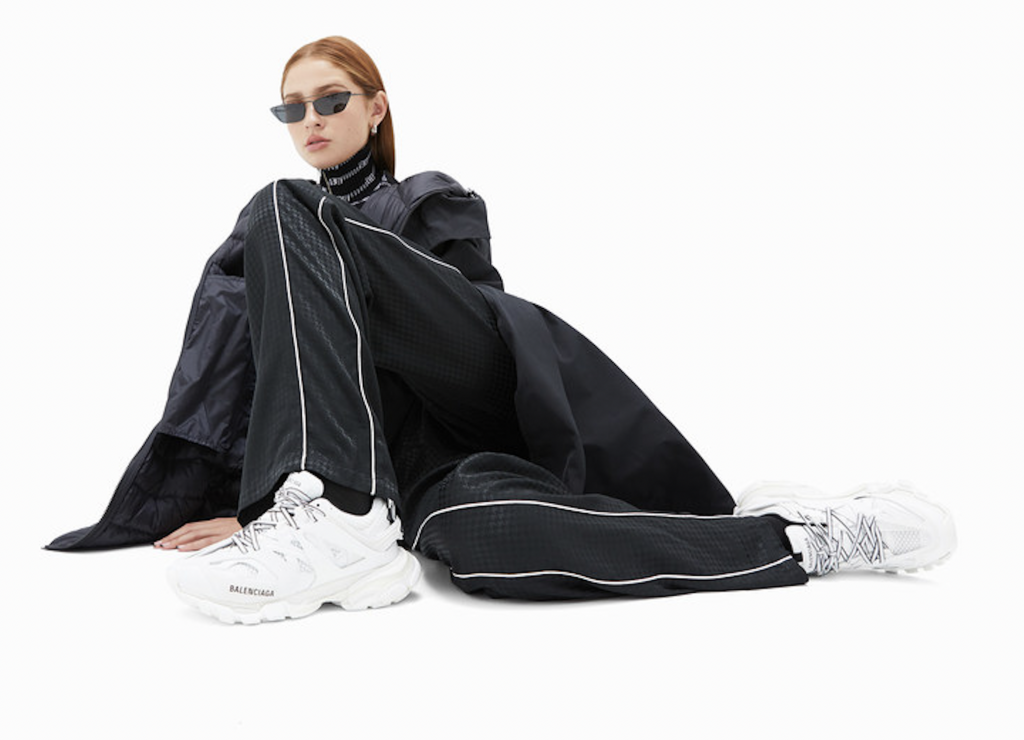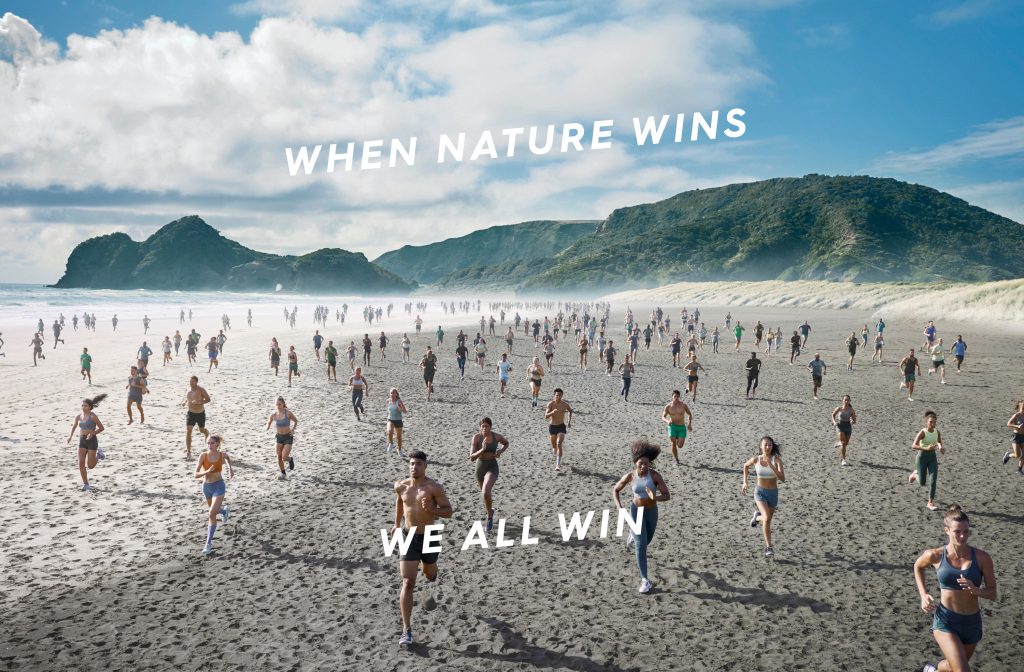GOAT Group has a new investor. The buzzy sneaker resale site revealed on Tuesday that it has welcomed a “strategic investment” from Groupe Artemis – the controlling shareholder of Gucci, Balenciaga, Saint Laurent, and Bottega Veneta’s parent company Kering – as it “continues its expansion in fashion apparel and new categories.” While GOAT has not disclosed the size of the investment, the 6-year old company, which characterizes itself as “the leading and most trusted sneaker marketplace in the world,” notes that the Artemis investment comes on the heels of a Series E round of $100 million announced in September 2020, which valued the company at $1.75 billion.
In a statement on Tuesday, Francois-Henri Pinault, the founder and president of Groupe Artemis, and the chairman and CEO of Kering, asserted that “GOAT has established a rapidly growing, distinctive brand with tens of millions of younger luxury consumers, and our investment reflects our belief in their business model and the power of their technology and platform to tell the story of our brands.” He further noted, “We see significant opportunities for expanded partnerships and many synergies between GOAT and our portfolio of brands.”
Meanwhile, GOAT co-founder and CEO Eddy Lu said that the Groupe Artemis investment “is another important step as we double-down on our expansion in apparel and new categories,” noting that the Artemis “will help us further accelerate our growth, particularly in fashion apparel, as we continue to drive forward with our mission to bring the greatest products together from the past, present and future.”
Image Conscious & Control-Hungry
The newly-announced investment is interesting for at least a couple of reasons. For one thing, it is the latest in a growing number of indications that luxury brands are, in fact, looking to get involved in the resale of their own offerings. Kering-owned Gucci, for instance, revealed a months-long tie-up with The RealReal in October, a move that saw The RealReal devote an online shop to pre-owned Gucci items, sourced directly from Gucci, as well as from its own consignors. While the partnership was primarily touted by the resale titan and the Italian luxury brand this fall as a bid to “support a circular economy,” it was also certainly a way for Gucci and Kering to try their hand at formally feeding the resale market, and gauge demand and success ahead of launching their own endeavor either in an in-house capacity or via an equity-driven partnership with an existing resale entity.
Not the only luxury player wading into the resale market, Chanel – which has been notoriously tough on the unauthorized sale of its products by resale sites – has reportedly worked with Farfetch in connection with the latter’s “Second Life” resale venture since taking a minority stake in the online retail platform in late 2017. Still yet, Richemont made headlines in June 2018 when it acquired preowned watch company Watchfinder, in furtherance of its own move into the resale space, and LVMH took a minority stake in sneaker site Stadium Goods via its LVMH Luxury Ventures in February 2018, with New Guards Group ultimately scooping up the company that December for $250 million. (Sources for TFL suggest that despite claims from Antoine Arnault, LVMH’s head of image, communications and environment, that LVMH is “looking at” the secondhand market, it is not yet readying a move into luxury resale on the basis that the sale of pre-owned sneakers – à la Stadium Goods – differs quite significantly from high fashion and leather goods).
The initiation of resale activities by some of the fashion and luxury goods industries’ biggest names should come as little surprise given the substantial growth that is underway, driven largely by sustainability and cost-conscious young consumers. According to a report from Boston Consulting Group, the luxury resale market is expected to grow at an average rate of 12 percent per year through 2021 to a whopping $36 billion with a 9 percent share of the personal luxury goods segment, outpacing the 3 percent growth rate for the primary luxury market for that same period of time.
Beyond the sheer scope of the market, luxury resale-specific efforts also make sense given that in-house buy-back and resell operations and/or joint ventures with the same aim enable brands to better control the resale market of their products (something that is otherwise largely limited due to trademark tenets like the First Sale Doctrine), including issues involving authentication, which has been a point of contention for resellers, including The RealReal. Modification/alteration is also a key concern for luxury goods brands, as indicated in one of the latest rounds of Chanel’s fight against luxury consignment company What Goes Around Comes Around.
These issues are of extreme importance to image-conscious (and frankly, image-dependent) luxury brands, and bringing resale operations under the own roofs – or at least closer to home – will enable brands to reclaim at least some of the control that they have most-definitely lost as unaffiliated third-party resellers have come to dominate the market.
Goat v. Goat
The other striking element of the Artemis investment in GOAT comes in connection with the parties’ emphasis on the burgeoning reseller’s expansion into apparel. This is noteworthy, as GOAT Group is fresh out of a legal battle with the unaffiliated Goat Fashion, which filed suit against GOAT Group in a New York federal court in December 2019. In that since-settled suit, London-based Goat Fashion set out claims of trademark infringement and breach of contract, and argued that the like-named sneaker upstart was “willfully disregarding” its well-established intellectual property rights, namely, its rights in the “Goat” trademark in the U.S., which Goat Fashion argued that it has consistently used since 2003 and has “spent a substantial amount of time, money, and resources advertising its apparel under” that name.
Pointing to examples of potential confusion, Goat Fashion asserted in its complaint that its website has been bombarded with searches for terms like “Yeezy’” – the name of a collection of sneakers produced by adidas and Kanye West – which “is the most popular search term on its website,” despite the fact that the British fashion brand does not sell athletic footwear. Similarly, Goat Fashion asserts that its e-commerce site has “received searches for ‘Supreme shirt,’ ‘Gucci belt,’ and ‘hoodie,’ each of which is an item of apparel or an apparel-related accessory sold by [GOAT].”
These searches “strongly suggest that consumers are inclined to confuse Goat Fashion’s and [GOAT’s resale] platforms,” Judge Paul Engelmayer of the U.S. District Court for the Southern District of New York asserted in his preliminary injunction order this fall.
In its suit, Goat Fashion also claimed that GOAT was running afoul of the co-existence agreement that the parties entered into in April 2017, which established that in order to alleviate potential confusion in the marketplace and to enable the two companies to co-exist peacefully, Goat Fashion would “continue to use its ‘Goat’ mark for goods and services related to clothing,” while GOAT Group would “limit its use of its GOAT mark [within that class] to services in connection with its online marketplace … ‘athletic and sporting footwear,’ i.e., sneakers.”
The parties ended up settling the case out of court in late November 2020, with a representative for Goat Fashion telling TFL that the case had “concluded with a settlement between the two parties,” but declining to shed light on the terms of the settlement.
The “apparel” section of GOAT’s website was wiped clean of all products for the duration of the Goat v. Goat legal squabble as a result of the preliminary injunction that Goat Fashion was awarded early on in the case. The apparel section remained barren immediately following the conclusion of the case, as well. However, since then, it has been populated with garments from the likes of Gucci, Supreme, Off-White, and Comme des Garçons, among those of other brands, plus Gucci, Bottega Veneta, Fendi, and Loewe bags, in what appears to be a seeming testament to the fact that the parties’ settlement left room for GOAT to expand beyond sneakers, presumably for a price.
A rep for GOAT did not immediately respond to a request for comment about how the outcome of the case has impacted the company’s expansion efforts.













